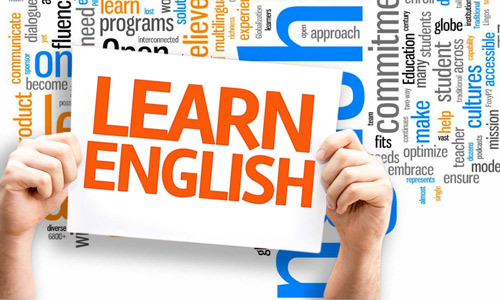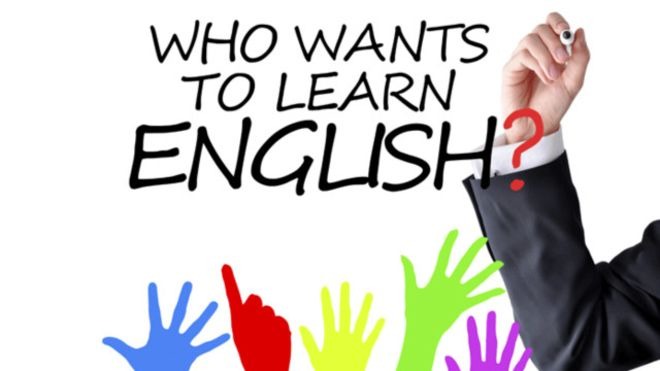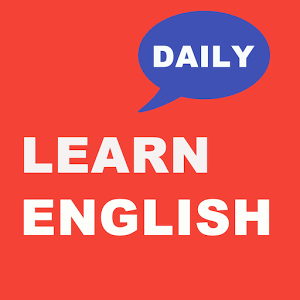
Bài tập tiếng Anh lớp 10 unit 11 có đáp án
Cùng làm bài tập tiếng Anh lớp 10 unit 11 chủ đề National Panks với các phần dưới đây. Mỗi phần sẽ đề cập đến từng chủ điểm khác nhau như phát âm, ngữ pháp tiếng Anh, từ vựng tiếng Anh giúp các em có thể luyện tập tại nhà tốt hơn.
Cùng làm bài tập tiếng Anh lớp 10 unit 11 chủ đề National Panks với các phần dưới đây. Mỗi phần sẽ đề cập đến từng chủ điểm khác nhau như phát âm, ngữ pháp tiếng Anh, từ vựng tiếng Anh giúp các em có thể luyện tập tại nhà tốt hơn.

Cùng làm bài tập tiếng Anh lớp 10
Bài tập tiếng Anh lớp 10 có đáp án chuẩn
UNIT 11: NATIONAL PANKS
I. Choose the word with the underlined letter pronounced differently from the others.
|
1. a. nation |
b. tourist |
c. study |
d. return |
|
2. a. world |
b. children |
c. grandfather |
d. dangerous |
|
3. a. nature |
b. potential |
c. option |
d. pollution |
|
4. a. handsome |
b. Wednesday |
c. dependent |
d. grandchild |
|
5. a. castle |
b. fasten |
c. ballet |
d. intend |
|
6. a. national |
b. question |
c. population |
d. station |
II. Complete the sentences with the correct form of the verbs in the box.
|
locate establish orphan abandon contaminate explore release defeat contain endanger |
1. There is a danger of serious……………from radioactive waste.
2. The giant panda is in danger of becoming extinct. It is an……………species.
3. Cuc Phuong National Park is……………160 km South West of Ha Noi.
4. He wants……………how the human brain will function under these circumstances.
5. He has been……………since he was five.
6. The enemy was……………in a decisive battle.
7. His mother……………him when he was five days old.
8. The board agreed……………two committees to examine the proposals.
9. Toxic gases from industrial factories were……………into the atmosphere.
10. Brown rice……………a lot of vitamins and minerals.
III. Complete the sentences with the correct form of the words in brackets.
1. I didn’t go into business with Sam. If I……………(go) into business with him,
I……………(become) a success.
2. We got to the station in time to catch the train. If we……………(miss) it, we……... (be) late for the meeting.
3. Mary and I weren’t able to go on a honeymoon. We……………(can/ go) away if my father……………(not get) sick.
4. I took a taxi to the hotel but the traffic was very bad. It……………(be) quicker if I ……………(walk).
5. It’s good that you reminded me about Ann’s birthday. I……………(forget) if you ……………(not remind) me.
6. The view was wonderful. If I……………(have) a camera, I……………(take) some photographs.
7. Unfortunately, I didn’t have my address book with me when I was in New York. If I ……………(have) your address, I……………(send) you a postcard.
8. We……………(may/ be) at the airport for hours, if we……………(not know) that the flight was delayed.
9. The accident was your fault. If you…………….(drive) more carefully, it ……………(not happen).
10. If you……………(tell) me you needed money, I……………(can/ lend) you some.
IV. Write a sentence with if for each situation.
1. He didn’t prepare for the interview, so he didn’t get the job.
…………………………………………………………………………………………...
2. We came home from our holiday early because we ran out of money.
…………………………………………………………………………………………...
3. I can’t take much exercise because I don’t have enough free time.
…………………………………………………………………………………………...
4. The house didn’t burn down because the fire brigade came immediately.
…………………………………………………………………………………………...
5. The men were wearing protective clothing, so they were all quite safe.
…………………………………………………………………………………………...
6. People don’t realize how important it is to conserve energy, so they do nothing about it.
…………………………………………………………………………………………...
7. I took the job because I didn’t know how difficult it was.
…………………………………………………………………………………………...
8. My father didn’t earn much money, so life wasn’t easy for us.
…………………………………………………………………………………………...
9. Daniel really wanted to buy the book, but he didn’t have enough money.
…………………………………………………………………………………………...
10. There isn’t any truth in her allegations, so I won’t resign.
…………………………………………………………………………………………...
11. Andrew wanted to ask Frank Sinatra for his autograph, but he wasn’t brave enough.
…………………………………………………………………………………………...
12. I don’t know anything about plumbing, so I can’t fix the leak in the sink myself.
…………………………………………………………………………………………...
13. Rita is exhausted today because she didn’t get any sleep last night.
…………………………………………………………………………………………...
14. The doctor doesn’t really care about his patient. He didn’t explain the medical procedure to me before surgery.
…………………………………………………………………………………………...
15. Bob left his wallet at home this morning, and now he doesn’t have any money for lunch.
…………………………………………………………………………………………...
V. Read the following newspaper report and use a suitable form of each verb in brackets.
Several cars were involved in the pile-up because no one (1)……………(try) to phone the police for help. If someone (2)……………(call) the police immediately, they (3)……………(be able) to send an ambulance and also direct the traffic, thus (4)……………(prevent) the other accidents. A passer-by (5)……………(tell) police that he (6)……………(decide) to free the trapped driver before (7)…………… (phone) the police. He said that the trapped driver (8)……………(beg) him not to leave him. If he (9)……………(go off) to look for a phone or to seek help, the driver (10)……………(be) in the car when it (11)……………(hit) by the second car.
VI. If necessary, correct these sentences.
1. If Jack had been honest, he would return the money.
2. The video pauses if you press this button.
3. If she would have really wanted to see me, she would have come earlier.
4. If he doesn’t break the window then who is responsible?
5. If Claire will continue to work hard, she should pass the exams easily.
6. Steve would have been attacked if I hadn’t come along.
7. I’d be able to visit Jim first thing in the morning if I stay in Manchester overnight.
8. Speak to Jane if you wanted to book a room.
9. If you know what it was going to be like, why did you come?
10. You’d be surprised if I told you how much this cost.
11. If I had suddenly announced that the holiday was cancelled, the children had objected.
12. We might soon be making a profit if all will go according to plan.
VII. Choose the best answers to complete these conversations.
1. ‘It’s pity the lake wasn’t frozen yesterday.’ ‘Yes, it is. If it………….frozen, we………….skating.
|
a. had been/ could have gone |
b. was/ could go |
|
c. would be/ would have gone |
d. would have been/ had gone |
2. ‘Are you thinking about going to the Bahamas for the holidays?’ ‘No, but ì I ………….the time, I would definitely………….”
|
a. have/ go |
b. had/ go |
|
c. have had/ have gone |
d. would have/ have gone |
3. ‘There’s always something going wrong with this car.’ ‘If you had any sense, you’d ………….it long ago.’
|
a. be selling |
b. have sold |
c. sell |
d. sold |
4. ‘Was Pam seriously injured in the accident?’ ‘She broke her arm. It………….much worse if she hadn’t been wearing her seat belt.
|
a. will be |
b. would have been |
c. was |
d. were |
5. ‘My boss made me work overtime again.’ ‘If I………….you, I………….my job.’
|
a. were/ would have quit |
b. am/ will quit |
|
c. was/ must quit |
d. were/ would quit |
6. ‘Can I borrow your car for this evening?’ ‘Sure, but Nora’s using it right now. If she………….it back in time, you………….welcome to borrow it.’
|
a. brought/ will be |
b. would bring/ were |
c. will bring/are |
d. brings/ are |
7. ‘Why didn’t Bill get the promotion he was expecting?’ ‘He may not be qualified. If he were, he………….that promotion last year.’
|
a. would have been given |
b. was given |
|
c. would be given |
d. had been given |
8. ‘Why are you going mountain climbing next weekend?’ ‘To be honest with you, I’m lazy. If I…………., I………….with you.’
|
a. hadn’t been/ would have gone |
b. weren’t/ would go |
|
c. am not/ will go |
d. weren’t/ go |
9. ‘Will you see Tom at lunch today? I’d like you to give him a message.’ ‘I’m not going to lunch, but if I………….him later, I………….him your message.’
|
a. should see/ will give |
b. see/ give |
|
c. saw/ would give |
d. could see/ will give |
10. ‘John went to the hospital alone.’ ‘Did he? If he………….me, I………….with him.’
|
a. told/ would go |
b. told/ might have gone |
|
c. had told/ could go |
d. had told/ would have gone |
11. ‘My car broke down when I was leaving Detroit.’ ‘………….we’d………….you up.’
|
a. If we had known/ pick |
b. Had we known/ have picked |
|
c. If we’d known/ picked |
d. If we knew/ pick |
12. ‘I don’t know whether to take that job or not.’ ‘………….you, I………….it.’
|
a. If I had been/ would have taken |
b. Should I be/ will take |
|
c. If I were/ would have taken |
d. were I/ would take |
13. ‘You look tired.’ ‘Well, if you………….me up in the middle of the night, I……… so tired.’
|
a. didn’t wake/ wouldn’t have been |
b. hadn’t woken/ wouldn’t be |
|
c. hadn’t woken/ wouldn’t have been |
d. don’t wake/ won’t be |
14. ‘Alice is moving to her new apartment next Saturday.’ ‘I………….glad to help her………….some help.’
|
a. will be/ should she need |
b. am/ if she will need |
|
c. must be/ if she needs |
d. would be/ had she needed |
15. ‘Why are you sitting in the dark?’ ‘Let’s just say that if I………….my electricity bill last month, I………….in the dark now.’
|
a. paid/ wouldn’t be |
b. paid/ won’t be |
|
c. had paid/ wouldn’t have been |
d. had paid/ wouldn’t be |
VIII. Choose the correct preposition.
1. Tourists go to Cuc Phuong National Park to look at/ for the 1000 year old tree.
2. He left school to take care of/ on his sick mother.
3. Do you belong in/ to any campus clubs or organizations?
4. Now that she has graduated, Anne is no longer dependent to/ upon her parents in/ for financial support.
5. That man is an idiot. He pushed me down/ into the swimming-pool.
6. Were you surprised at/ with the grade you received?
7. Unfortunately, the excursion turned out/ into to be a disaster.
8. Did you hear that news on/ in television or read it on/ in the newspaper?
9. Occupational physicians search on/ for the causes of injury and sickness at the workplace.
10. Due on/ to a computer error, $100000 was transferred to/ onto Judy’s account.
11. They have to live in/ on a Social Security check of $500 a month.
12. I’m always interested in/ on how to recognize the different species of plants.
IX. Choose the correct answers to complete this passage.
Mount Rainer, the heart of Mt. Rainier National Park, is the highest mountain in the state of Washington and in the Cascade (1)………….The mountain’s summit is broad and rounded. It is 14410 feet (2)………….sea level and has an area of about one square mile. Numerous steam and gas jets occur (3)………….the crater, but the volcano has been sleeping for many centuries.
Mount Rainer has a permanent ice cap and (4)………….snow fields, which give rise to more than forty glaciers. These feed swift streams and tumbling waterfalls that race (5)………….the glacial valleys. Forests extend to 4500 feet. There are alpine meadows between the glaciers and the forests, which (6)………….beautiful wild flowers. The Nisqually Glacier is probably the ice region that is most often (7)………. by visitors. Paradise Valley, (8)………….hotel accommodations are available, perches (9)…………the mountains slope at 5400 feet. The Wonderland Trail encircles the mountain. (10)………….90-mile length can be covered in about a week’s time.
|
1. a. Range |
b. Park |
c. Mount |
d. Area |
|
2. a. on |
b. above |
c. from |
d. over |
|
3. a. on |
b. in |
c. through |
d. around |
|
4. a. extend |
b. extended |
c. extensive |
d. extensible |
|
5. a. to |
b. into |
c. through |
d. down |
|
6. a. contain |
b. include |
c. combine |
d. cover |
|
7. a. attracted |
b. traveled |
c. established |
d. explored |
|
8. a. which |
b. where |
c. whose |
d. there |
|
9. a. on |
b. at |
c. in |
d. along |
|
10. a. It’s |
b. This |
c. Their |
d. Its |
X. Read the passage carefully, then decide whether the following statements are true (T), false (F), or no information (NI).
The idea of national parks began in the US, which now has 54 of them, covering over 80000 square miles (200000 square kilometers). The great majority are in western states. The National Park Service is responsible for protecting the natural state of the parks for the benefit of the public. America’s parks are so popular that they are being harmed by the number of visitors and their cars. To try to stop this, the National Park Service announced in 1997 that people would only be able to visit some parks using public transport.
The oldest national park in the world is Yellowstone National Park, established in 1872. The largest US park is Wrangell-ST Elias in Alaska with 13000 square miles (34000 square kilometers). It has few visitors because it is very remote. The most popular park is the Great Smoky Mountains. Many parks are well known for some special feature, such as the Grand Canyon, the Everglades and the Petrified Forest.
1. The United States created the world’s first national park in the late nineteenth century.
2. Most of the US national parks are located in the west.
3. The number of visitors coming to America’s national parks is rising steadily.
4. People are not allowed to drive in some national parks.
5. Wrangell-St Elias in Alaska has few visitors because it’s hard to find.
6. The National Park Service is in charge of the parks.
XI. Complete each of the following sentences, using the words given.
1. The national park/ be/ large/ piece of land/ which/ animals/ free/ come and go.
…………………………………………………………………………………………...
2. Yellowstone/ become/ world/ first/ national park/ 1872.
…………………………………………………………………………………………...
3. Plans/ make/ restore/ the parks/ natural condition/ much/ possible/ since then.
…………………………………………………………………………………………...
4. Cuc Phuong/ first/ national park/ Vietnam/ officially/ open/ 1960.
…………………………………………………………………………………………...
5. According/ scientists/ there/ about 2000/ different/ flora/ the park.
…………………………………………………………………………………………...
6. Many visitors/ come/ see/ the work/ do/ protect/ endangered species.
…………………………………………………………………………………………...
7. Best time/ visit/ park/ October/ April/ rainy season/ over.
…………………………………………………………………………………………...
8. Cuc Phuong/ also/ home/ Muong ethnic minority/ live/ mainly/ bee keeping/ farming.
…………………………………………………………………………………………...

Kiểm tra đáp án bài tập tiếng Anh lớp 10 unit 11 bên dưới nhé
ĐÁP ÁN:
I. 1. a 2. c 3. a 4. c 5. d 6. B
II.
|
1. contamination |
3. located |
5. orphaned |
7. abandoned |
9. released |
|
2. endangered |
4. to explore |
6. defeated |
8. to establish |
10. contains |
III.
|
1. had gone – would/ could have become |
6. had had – would have taken |
|
2. had missed – would have been |
7. had had – would have sent |
|
3. could have gone – hadn’t gotten |
8. might have been – hadn’t known |
|
4. would have been – had walked |
9. had driven – wouldn’t have happened |
|
5. would have forgotten – hadn’t reminded |
10. had told – could have lent |
IV.
1. If he had prepared for the interview, he would have gotten the job.
2. If we hadn’t run out of money, we wouldn’t have come home from our holiday early.
3. If I had more free time, I would take more exercise.
4. If the fire brigade hadn’t come immediately, the house would have burnt down.
5. If the men hadn’t worn protective clothing, they wouldn’t have been all quite safe.
6. If people realized how important it is to conserve energy, they would/ might do something about it.
7. If I had known how difficult the job was, I wouldn’t have taken it.
8. Life would have been easy for us if my father had earned more money.
9. If Daniel had bad enough money, he would have bought the book.
10. If there was/ were any truth in her allegations, I would resign.
11. If Andrew had been brave enough, he would have asked Frank Sinatra for his autograph.
12. If I knew something about plumbing, I could fix the leak in the sink myself.
13. Rita wouldn’t be exhausted today if she had gotten some sleep last night.
14. If the doctor really cared about his patients, he would have explained the medical procedure to me before surgery.
15. If Bob hadn’t left his wallet at home this morning, he would have some money for lunch.
V.
|
1. tried/ had tried |
7. phoning |
|
2. had called |
8. had begged/ begged |
|
3. would have been able |
9. had gone off |
|
4. preventing |
10. would have been |
|
5. told |
11. was hit |
|
6. decided/ had decided |
|
VI.
|
1. he would have returned… |
7. …if I stayed…/I’ll be able to visit Jim |
|
2. Ѵ |
8. …if you want… |
|
3. If she had really wanted to see me… |
9. If you know… |
|
4. If he didn’t break…. |
10. Ѵ |
|
5. If Claire continues… |
11. …the children would have objected. |
|
6. Ѵ |
12. …if all goes according to plan. |
VII.
|
1. a |
2. b |
3. b |
4. b |
5. d |
6. d |
7. a |
8. b |
9. a |
10. d |
|
11. b |
12. d |
13. b |
14. a |
15. d |
|
|
|
|
|
VIII.
|
1. at |
2. of |
3. to |
4. upon - for |
5. into |
6. at |
7. out |
8. on - in |
|
9. for |
10. to - to |
11. on |
12. in |
|
|
|
|
IX. 1. a 2. b 3. d 4. c 5. c 6. a 7. d 8. b 9. a 10. D
X. 1. T 2. T 3. NI 4. T 5. F 6. T
XI.
1. The national park is a large piece of land in which animals are free to come and go.
2. Yellowstone became the world’s first national park in 1872.
3. Plans have been made to restore the parks to their natural condition as much as possible since then.
4. Cuc Phuong, (which was) the first national park in Vietnam, was officially opened in 1960.
5. According to scientists, there are about 2000 different species of flora in the park.
6. Many visitors come to see the work be/ being done to protect endangered species.
7. The best time to visit the park is from October to April, when the rainy season is over.
8. Cuc Phuong is also home to the Muong ethnic minority, who live mainly on bee keeping and farming.
Nếu không muốn làm bài tập tiếng Anh lớp 10 trực tiếp trên trang thì bạn có thể download bản đầy đủ tại đây. Download về máy để có thể luyện tập bất kỳ lúc nào nhé.
Bài viết cùng chuyên mục
- Bài tập tiếng Anh lớp 10 unit 12 có đáp án 06/10
- Bài tập tiếng Anh lớp 10 unit 10 có đáp án 04/10
- Bài tập tiếng Anh lớp 10 unit 9 có đáp án 03/10
- Bài tập tiếng Anh lớp 10 unit 7 có đáp án 30/09
- Bài tập tiếng Anh lớp 10 unit 6 có đáp án 28/09
- Bài tập tiếng Anh lớp 10 unit 5 có đáp án 28/09
- Bài tập tiếng Anh lớp 10 unit 4 có đáp án 26/09
- Bài tập tiếng Anh lớp 10 unit 3 có đáp án 26/09
- Bài tập tiếng Anh lớp 10 unit 8 có đáp án 24/09
- Bài tập tiếng Anh lớp 10 unit 2 có đáp án 24/09








.png)






